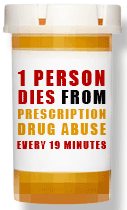Recommendations for Drug Treatment of 130/80 (Normal) Blood Pressure Are Not Good

“Let the buyer beware” might be a better slogan than “Ask your doctor.”
“Six facts should caution patients re new ‘guidelines’ for MDs to prescribe their drugs” (Washington Post, 11-13-17) says Richard Ruhling, a retired physician who was board-certified in internal medicine and taught at Loma Linda Univ, offers the following information.
#1. About 40 years ago the Modem Concepts of Cardiovascular Disease published by the American Heart Association for cardiologists offered this insight: “Unless the arterial pressure is inordinately high (105 diastolic [bottom number]), therapy should begin by environmental modification [food, beverages, exercise, sleep, stress control] rather than or prior to drug treatment.” Millions of people would be better off to do so.
#2. There is no evidence that blood pressure made low by drugs has the same low risk as a person whose blood pressure is low from positive habits mentioned above. The same may be said for cholesterol. People who eat wisely and have a low cholesterol are better off than those who take a prescription to make it low. This is true for blood sugar as well. People who eat well and have good glucose levels have lower risk than those who take drugs to achieve low levels, and most oral agents have been bedeviled by higher cardiac risks dating to the UGDP Study (University Group Diabetic Program) reported about 1970 that those taking orinase and diabinese had about double the cardiac risk. The names of drugs are different now, but patients should read package inserts for their drugs…still risky.
#3. Also about 40 years ago, Nathan Pritikin reported at the American College of Cardiology Convention that his low fat diet got 85% of patients with high blood pressure off drugs. Fats tend to make the blood sticky, so the pressure goes up. Caffeine was also forbidden by Pritikin and his diet got a similar number of Type 2 diabetics off their drugs, but the American Heart and American Diabetic Associations did nothing to help Pritikin, and MD’s said he hadn’t cured it because if people went off their diet, the blood pressure went up again. What happened to their Hippocratic Oath to do no harm. Food will always be safer than drugs.
#4. “In the widest sense of the word, every drug is by definition a poison. Pharmacology and toxicology are one, and the art of medicine is to use these poisons beneficially.” Drill’s Textbook of Pharmacology in Medicine, Chapter 5, Mechanisms of Drug Action. That author was reminding us that pharmacology evolved from toxicology—the science of how much of a chemical will kill half the animals. Not too much has changed.
#5. Hippocrates, the Father of Medicine, was right—“Nature cures…Let your food be your medicine.” The medical system is economically driven to see as many patients as possible and having a prescription for the many presentations resulting from bad lifestyle make it easy to see a patient quickly and get on to the next one.
#6. Marcia Angell, MD was editor of the New England Journal of Medicine and he book, “The Truth About the Drug Companies; How They Deceive Us” offers insight to the problem. She told 60 Minutes decades ago that members of Congress get $400 million a year toward their re-election campaigns. Pharma was behind a large part of Obamacare. Dr. Carson was right in saying “It’s the worst thing since slavery.” How idiotic for Pelosi to say, “We have to vote it into law to find out what’s in it!” (20,000 pages) when real healthcare could be as simple as eating better and getting some exercise.
Dr. Richard Ruhling is author of Why You Shouldn’t Ask Your Doctor on Amazon and he offers more information at http://RichardRuhling.com
Contact Detail:
Company Name: Total Health
Contact Person: Dr. Richard Ruhling
Email: Ruhling7@juno.com
Phone No: 9285837543
State: Arizona
Country: United States
Website Url: http://RichardRuhling.com
Source: www.PRExhibition.com


There are no comments at the moment, do you want to add one?
Write a comment